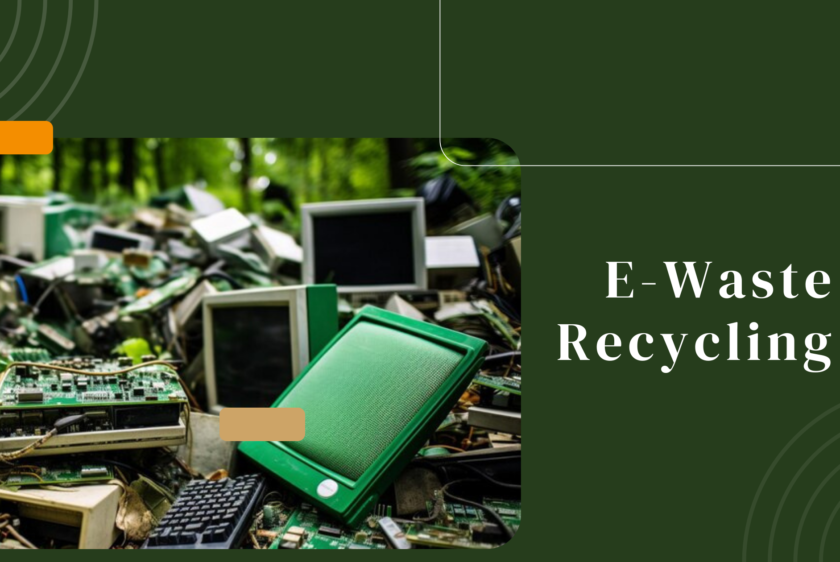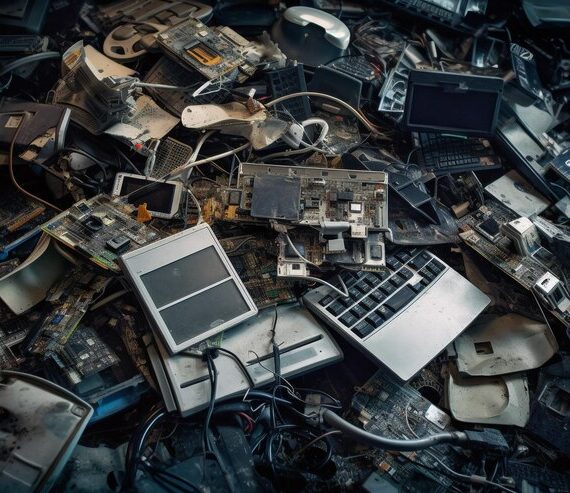
How Does E-Waste Recycling Help to Preserve Natural Resources?
In the digital age, electronic devices have become essential tools for communication, work, and entertainment. However, the rapid turnover of these gadgets leads to a significant environmental challenge: electronic waste, or e-waste. To combat this issue, e-waste recycling emerges as a vital solution, playing a crucial role in preserving natural resources, mitigating pollution, and promoting a circular economy. But how exactly does recycling help protect natural resources? Let’s explore how electronic waste recycling contributes to resource conservation and environmental sustainability.
Resource Conservation Through E-Waste Recycling:
E-waste recycling plays a pivotal role in conserving natural resources in several ways:

Recovery of Precious Metals:
When we discard electronic devices, we’re also throwing away valuable resources. Inside our phones, laptops, and other gadgets lie precious and rare metals like silver, gold, and copper. These metals are expensive and scarce. Typically, these metals are extracted through mining, which involves digging deep into the earth’s crust, causing environmental degradation and depleting natural reserves. However, recycling e-waste allows us to access these valuable resources without causing more harm to the environment. E-waste recycling enables us to retrieve precious metals from old devices, decreasing the need for more mining and aiding in preserving our planet’s limited resources.
Minimization of Raw Material Demand:
Electronic device manufacturing requires vast amounts of raw materials, including metals like aluminum, copper, steel, plastics, and glass. Obtaining these materials involves extensive mining, logging, and extraction processes, which can have devastating effects on ecosystems and biodiversity. However, recycling e-waste and repurposing recovered materials can significantly reduce the demand for virgin resources.
By repurposing old electronics, we help conserve natural resources and reduce the environmental impact of resource extraction and processing. This strategy encourages a more sustainable and circular economy by encouraging the reuse & recycling of materials instead of disposing of them after one use.
Energy Savings:
The process of extracting, refining, and processing raw materials into electronic components demands a substantial quantity of energy. This energy is often derived from fossil fuels that contribute to greenhouse gas emissions and exacerbate climate change. Conversely, e-waste recycling offers a more energy-efficient solution. Since the materials in electronic devices are already usable, recycling requires significantly less energy than extracting and refining raw materials from scratch.
By embracing e-waste recycling practices, we can reduce our reliance on fossil fuels, decrease energy consumption, and fix the adverse effects of climate change. This shift towards sustainable energy practices conserves natural resources and fosters a cleaner and greener environment for future generations.
Prevention of Environmental Pollution:
Improper disposal of e-waste poses severe risks to the environment and human health. Electronic devices often contain life-threatening components such as mercury, lead, and brominated flame retardants, which can seep into the soil and water sources if not handled and disposed of correctly. When electronic waste is dumped in landfills or incinerated, these harmful materials can leach out, contaminating ecosystems and posing significant health hazards to wildlife and communities. However, through responsible e-waste recycling practices, we can mitigate these risks.
Recycling facilities prevent pollution and protect our environment by safely extracting and disposing hazardous substances. By diverting e-waste from landfills and incinerators and ensuring proper handling and recycling, we can safeguard our natural resources and create a healthier and more sustainable world for future generations.
Concluding thoughts!
E-waste recycling is a critical tool in preserving natural resources. By recovering valuable materials from discarded electronic devices, recycling conserves finite resources, reduces energy consumption, minimizes pollution, and promotes sustainability. As individuals and communities, we must prioritize responsible e-waste management practices to safeguard the environment for future generations. Together, let us embrace the power of recycling to create a more sustainable and resource-efficient world.
Read Our More Blogs:
Recycling Challenges of Lithium-Ion Batteries
What Are the Environmental Benefits of Refurbishing Electronics?
Follow us:







